
Bahia is one of the 26 states of Brazil, located in the Northeast Region of the country. It is the fourth-largest Brazilian state by population and the 5th-largest by area. Bahia's capital is the city of Salvador, on a spit of land separating the Bay of All Saints from the Atlantic. Once a monarchial stronghold dominated by agricultural, slaving, and ranching interests, Bahia is now a predominantly working-class industrial and agricultural state. The state is home to 7% of the Brazilian population and produces 4.2% of the country's GDP.

Jorge Leal Amado de Faria was a Brazilian writer of the modernist school. He remains the best known of modern Brazilian writers, with his work having been translated into some 49 languages and popularized in film, notably Dona Flor and Her Two Husbands in 1976. His work reflects the image of a Mestiço Brazil and is marked by religious syncretism. He depicted a cheerful and optimistic country that was beset, at the same time, with deep social and economic differences.

The Country of Carnival is a Brazilian novel. It was written by Jorge Amado in 1931. In this debut novel, the themes that would come to permeate the author's work can already be seen, albeit in an embryonic form. The book is an account of the typical Brazilian intelligentsia of the 1920s. It has not been translated into English.

Cacau is Brazilian Social Realism novel written by Jorge Amado.
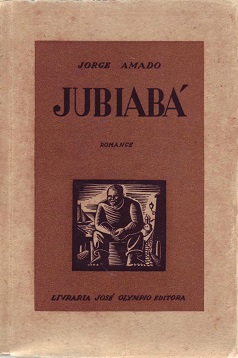
Jubiabá is a Brazilian modernist novel written by Jorge Amado in 1935. It earned Amado an international reputation, being hailed by Albert Camus as “a magnificent and haunting” book.
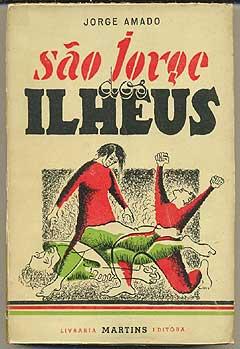
The Golden Harvest is a Brazilian Modernist novel. It was written by Jorge Amado from 1942–44, published in Portuguese in 1944 and in English in 1992.
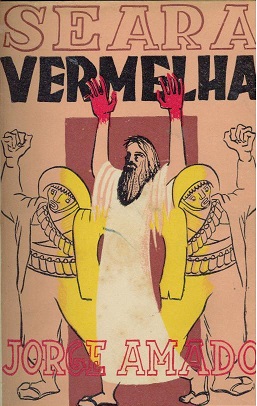
Red Field is a Brazilian Modernist novel. It was written by Jorge Amado. It has not been published in English.
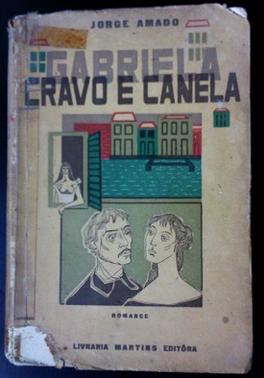
Gabriela, Clove and Cinnamon is a Brazilian modernist novel. It was written by Jorge Amado in 1958 and published in English in 1962. It is widely considered one of his finest works. A film adaptation of the same name was created in 1983.

Shepherds of the Night is a Brazilian novel. It was written by Jorge Amado in 1964 and published in English in 1967.

Showdown is a Brazilian Modernist novel. It was written by Jorge Amado in 1984.

The Discovery of America by the Turks is a Brazilian Modernist novel. It was written by Jorge Amado in 1994 but not published in English until 2012. Amado tells how, in 1991, he was approached by an organization in Italy to write a story to celebrate the fifth centennial of the discovery of the American continent. This would be published in a book, together with stories by Norman Mailer and Carlos Fuentes, which would be handed out to passengers flying between Italy and Central, North and South America in 1992, the year of the fifth centennial. Amado submitted The Discovery of America by the Turks but the Italian book was never published, leaving Amado free to publish the 77-page story as a separate volume.
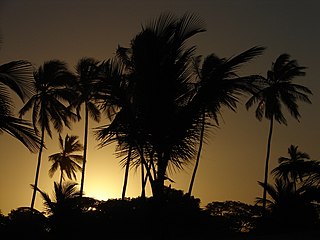
Ilhéus is a major city located in the southern coastal region of Bahia, Brazil, 211 km south of Salvador, the state's capital. The city was founded in 1534 as Vila de São Jorge dos Ilhéus and is known as one of the most important tourism centers of the northeast of Brazil.

Itacaré is a municipality in the cocoa zone of the state of Bahia in Brazil, south of Salvador.

Adonias Aguiar Filho was a novelist, essayist, journalist, and literary critic from Bahia, Brazil, and a member of the Academia Brasileira de Letras.

Itabuna is a municipality in Bahia, Brazil. It is the 6th largest city in Bahia by population after Salvador, Feira de Santana, Camaçari, Vitória da Conquista, and Juazeiro. It had an estimated 214,123 residents in 2021. Itabuna covers a total area of 401 square kilometres (155 sq mi) and has a population density of 550 residents per square kilometer.
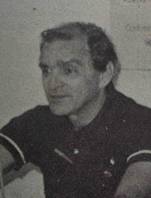
Elsimar Metzker Coutinho was a Brazilian scientist of Luso-Austrian descent, professor, gynecologist, television personality, and character named as "Prince of Itapoa", in the books of Jorge Amado which references the Coutinho family's land in Itapoa where Amado himself lived.
Tieta is a 1989 Brazilian telenovela, produced and broadcast by TV Globo. It originally aired between August 14, 1989, and March 30, 1990, spanning 196 episodes. It was TV Globo's 41st primetime telenovela, preceded by O Salvador da Pátria and followed by Rainha da Sucata.

Gabriela is a 1975 Brazilian telenovela based on the 1958 novel of the same name by Jorge Amado, starring Sônia Braga in the title role.
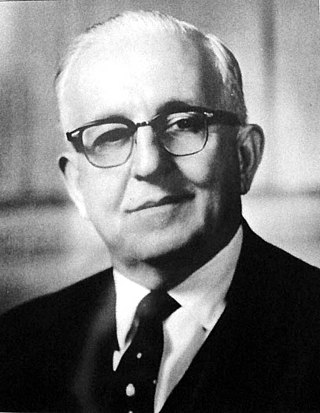
Juracy Montenegro Magalhães GCC • GCIH was a Brazilian military officer and politician. During his career, Magalhães was the state governor of Bahia twice: between 1931—1937 and 1959—1963 (elected); senator for Bahia (1955–1959), Minister of Justice (1965–66) and Minister of External Relations (1966–67) under president Humberto de Alencar Castello Branco, and Brazilian Ambassador to the United States. He was also the chairman of state oil company Petrobras (1954) and chairman of then state-run mining company Vale do Rio Doce.

The Brazilian cacao boom was a period in Brazil's economic history in which the country remained between first and second in world cacao production.



















